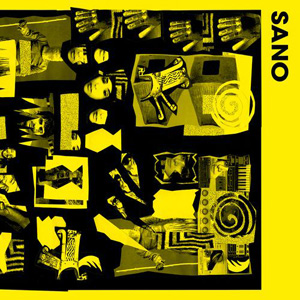Sano Sano
One of the most laudable aspects of the Cómeme label is its dedication to songcraft. […]

One of the most laudable aspects of the Cómeme label is its dedication to songcraft. It’s hard to think of another electronic imprint, especially one with such a leftield bent, whose artists are so invested in crafting “songs,” as opposed to merely turning out tracks that are suitable for DJing. This has been especially true with Cómeme’s LPs, which have previously all come from the larger artists on its roster: Matias Aguayo, Rebolledo, and Daniel Maloso. The self-titled debut full-length from Sano (a.k.a. Sebastian Hoyos) represents something of a departure then, not in terms of its dedication to songwriting, but because the relatively unknown Colombian producer first appeared on the label only last year. Still, Sano‘s 10 tracks show Hoyos to be an artist whose work flirts with more interesting structures than most.
That’s not to say Hoyos’ work has changed much since he issued the Chupa EP, his 2012 Cómeme debut. Much like that release, his new album feels like a creative re-imagining of the past, in which the polished aesthetic of contemporary tech-house is used in tandem with more esoteric references gleaned from ’80s industrial and beefed-up Chicago house. But more than just his sounds, his very structures are evocative of the dance music that evolved from the experimental electronic pop of the ’80s, with everything tightly structured around a central idea that’s sometimes expressed through lyrics. It might not sound like a particularly novel approach, but in practice, it offers a refreshing change of pace.
Moreover, Hoyos’ LP also comes across as a fully realized album. There’s an ebb-and-flow to it that doesn’t feel rushed, as the music is tied together via a kind of late-night paranoia, the kind of dread that starts to come on after a long evening filled with too much partying. He hints at the druggy connotations of such a mood on “Anestesia,” a minimalist narcotic dirge of swirling bass and bending guitars. A few songs later, dissonant pads streak across the surface of “Cotoneate,” leading into the self-dissection of “I Don’t,” a song whose harsh hi-hats serve as an eviscerating complement to its lyrics, “I just don’t know what to do/I don’t really understand anything about life.” It’s depressing, but in a way that weirdly doesn’t take itself too seriously.
Humor has a large part in the record, turning up in the playfulness of the instrumentation, which often exaggerates seemingly serious parts by counterbalancing them with more hammy material. Case in point is “Matasanos,” which throws bluesy ’60s organ riffs over a jarring bassline that sounds like the lower register of a piano run through a cheap sampler—the overall effect is like Nitzer Ebb covering Jay-Dee’s “Plastic Dreams.” Similarly light-hearted are the vocals, which more often than not remain firmly rooted in absurdist territory. “Necrophillic Love (feat. Diegors),” a Chicago-house-indebted song created in tandem with Hoyos’ Chilean labelmate, features extremely silly lyrics that go so far beyond taste that they kind of actually work. At the song’s peak, Diegors affects his best dracula voice and cuts through its horror-house bassline to declare, “I love you, because you are dead!” It’s not exactly high poetry (or high art), but there’s a hard-to-qualify earnestness beneath it all that shows through; it’s absurdity for absurdity’s sake.
And in truth, it’s that sense of absurdity and earnestness that makes Sano—and in some respects, much of the Cómeme catalog—so listenable. Admittedly, it might not be for everyone, but for those who enjoy the weirder currents of dance music, Hoyos’ next few steps are certainly ones to watch.

